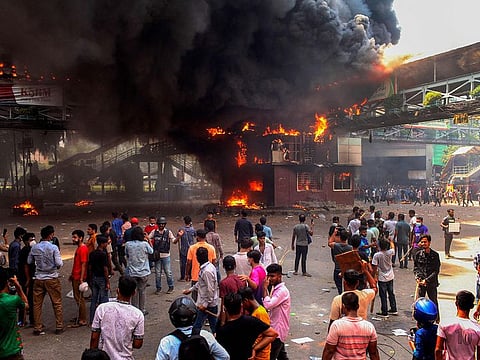Attacks on Bangladesh student protesters 'shocking': UN
The death toll in the ongoing protests reached 105 on Friday

Geneva: UN human rights chief Volker Turk said Friday he was deeply concerned by this week's violence in Bangladesh, calling the attacks on student protesters "shocking and unacceptable".
"There must be impartial, prompt and exhaustive investigations into these attacks, and those responsible held to account," Turk said in a statement.
The death toll in the ongoing protests reached 105 on Friday, according to an AFP count of victims from hospitals around the country.
The unrest has emerged as an unprecedented threat to Prime Minister Sheikh Hasina's government after 15 years in office.
Turk urged all sides to exercise restraint and called on the security forces to ensure any use of force is strictly in line with international human rights law.
"I am also very worried by reports about the deployment of paramilitary police units such as the Border Guard Bangladesh and the Rapid Action Battalion, which have long track records of violations," he said.
Turk urged the government to take measures to ensure the safety of students in peaceful protests, and to guarantee the right to freedom of assembly without fear of attacks against their lives.
"Bangladesh's political leaders must work with the country's young population to find solutions to the ongoing challenges and focus on the country's growth and development. Dialogue is the best and only way forward," he said.
"The shutting down of the internet is also of concern as it disproportionately restricts the enjoyment of the right to freedom of expression, including freedom to seek, receive and impart information - particularly in the midst of a crisis," Turk added.
"We urge the authorities to restore internet access without further delay."
Near-daily marches this month have called for an end to a quota system that reserves more than half of civil service posts for specific groups.
Critics say the scheme benefits children of pro-government groups that back Hasina, 76, who has ruled the country since 2009.
Hasina's government is accused by rights groups of misusing state institutions to entrench its hold on power and stamp out dissent, including by the extrajudicial killing of opposition activists.



